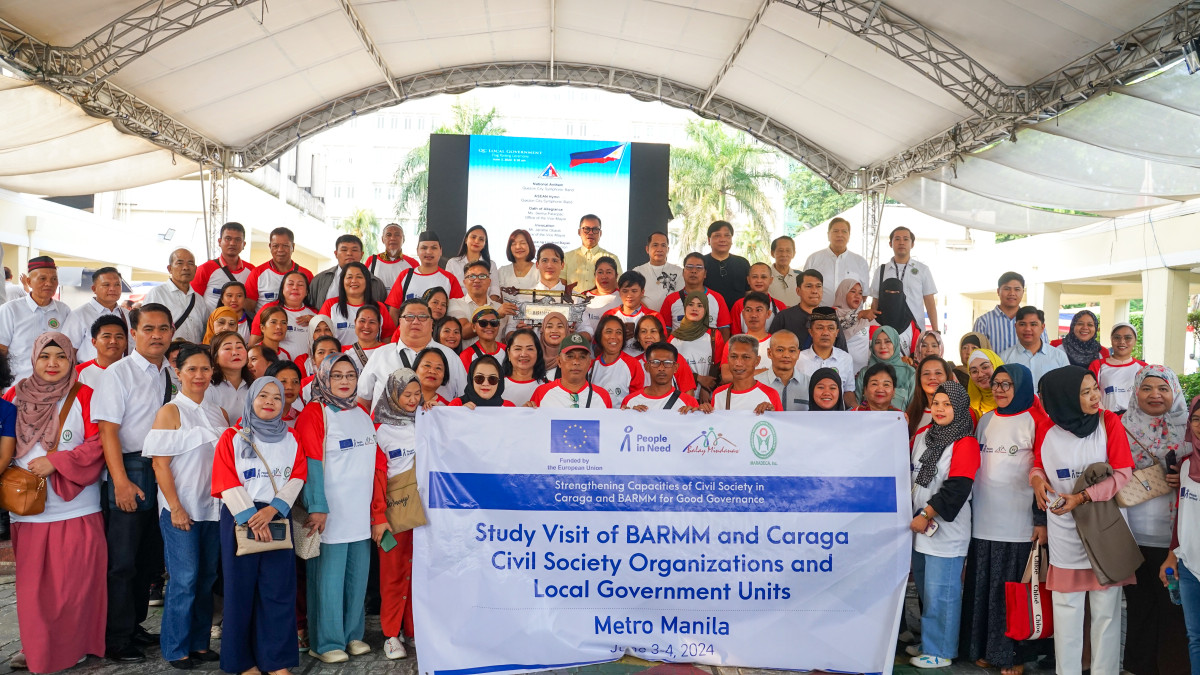CSOs, LGUs gain insights to enhance governance through island-to-island learning visits
Published: Jun 3, 2024 Reading time: 3 minutes Share: Share an articleRepresentatives from community organizations (CSOs) and local governments (LGUs) in Caraga and the Bangsamoro Autonomous Region in Muslim Mindanao (BARMM) joined hands for two study visits to Metro Manila and Cagayan de Oro, in June 2024. These trips aimed to bring back ideas on better governance and deeper collaboration, ensuring government decisions reflect community needs.

Exploring Governance in Metro Manila
On June 3, representatives from 17 CSOs and LGUs visited Quezon City and Pasig City to see how local communities work hand-in-hand with their governments. The group toured government offices, participated in community planning sessions, and engaged in discussions with officials and other CSO members. A highlight of the trip was a full-day training at the University of the Philippines - National College of Public Administration and Governance (UP-NCPAG) UP Diliman campus, where they explored strategies to empower citizens and improve government services through transparency and accountability.
Learning More in Cagayan de Oro City
Another batch of 17 CSOs and LGU representatives from Caraga and BARMM visited Cagayan de Oro to explore how the city fosters citizen involvement in local governance. They observed CSO engagement in projects and initiatives and saw social accountability in action through practices like citizen feedback and public hearings. Visits to local barangays helped participants witness community-driven solutions championed by local advocates.
Mayor Clarex Uy emphasized the value of government-citizen collaboration, saying, “By fostering cooperation, we ensure that governance remains inclusive and people’s voices are truly heard.”
Bringing Back Learnings from Field
These visits have strengthened ties between communities and local governments in Caraga and BARMM, helping them tackle important issues like women’s and children’s rights, agriculture, peace, and Indigenous Peoples’ rights. With support from our project, CSOs and LGUs are launching 10 joint initiatives to promote transparency and accountability in their respective communities. Together, They are building a foundation for a lasting positive change in Mindanao, showing that when communities and governments unite, everyone benefits.
This event is a key component of the “Strengthening Capacities of Civil Society in Caraga and BARMM for Good Governance” project, funded by the European Union and implemented by People in Need (PIN), Balay Mindanaw Foundation Inc. (BMFI), and Maranao People Development Center Inc. (MARADECA). The project collaborates with 34 CSOs and CSO networks across the Caraga and BARMM regions, aiming to enhance their participation in public decision-making at different government levels. It provides tailored capacity-building assistance, support to joint initiatives of CSOs with LGUs, and financial support to CSO actions.


